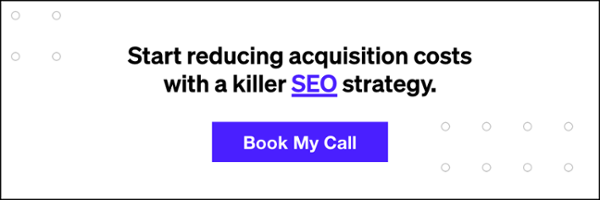It’s the age-old question people have been asking since the dawn of (search engine) time: how do I rank #1, as if there is a magic button marketers can push to make it happen. Wouldn’t that be nice? The truth is there are many things to contend with to ensure your website stays on the first page of the search engine results (SERPs) and even more that’s necessary to get you to the number one spot.
There are elements like algorithms, SERP layout changes, local listings, and URL history to consider. However, there are several actions you can take that you can help your website climb the rankings and capture the coveted first place spot.
Have Mobile Friendly Site
Nearly 60% of people are searching on their mobile devices as of 2016, per a Hitwise report published by Search Engine Land, and that number is most likely higher now that we’re halfway through 2017. Chances are, you’re reading this post right now from you smartphone or tablet. That’s just the way of the digital world we live in. And, if your website is not mobile friendly, a user most likely is clicking off your site and onto something else.
Related: How to Balance SEO and Branding
There are many aspects that go into creating a mobile friendly site. Being responsive is just one piece of the puzzle. You also need to consider page load time as well as the many behind-the-scenes technical elements. Most importantly, Google is already moving towards a mobile first index, but that’s another topic. Time is of the essence in digital marketing and people have short attention spans (in fact, studies have found that it’s shorter than a goldfish). We all expect sites to load in seconds, if not milliseconds. Additionally, how easy your site is to navigate is just as important as load time. If it’s not, then you lose that chance at what might be a first impression.
If your site is slow, isn’t responsive on mobile devices, or hinders the user experience in any way, chance are someone will bounce off quicker than the time it took for your website to load. It’s the hard truth. Any modern website should be built for mobile (in addition to desktop). Google even created this easy to use, Mobile Friendly Test tool so you can do a quick check. Enter your website URL and in a few seconds, it will analyze your page speed for mobile. Plus, it will give you optimization information that you can implement for your site to run faster.
Have A Keyword Strategy For Each Page
In addition to targeting a unique keyword (or set of keywords) per page, making your URLs relevant and easy to remember is valuable. Have you ever visited a site and come along a weird string of text beyond the website URL? For example, does it show something likewww.mywebsite.com/idpage2product= or something equally mysterious? These kind of URL strings provide a poor user experience and do not strategically use keywords. The URL structure is just as important to a website as any other element. To those who don’t work in SEO, it may not be something that is immediately noticeable, but it’s definitely important.
While not a ranking factor, using relevant keywords in your URLs, it does a few things. First, it just looks nicer. When your URL shows up in a SERP with a keyword that indicates what the page is about, that is helpful for the user, which means Google likes it. Second, it helps indicate the organization of your site, in case anyone ever wants to quickly navigate through your site again.
For example, if you are a travel site with a category of multiple articles talking about “beach stays,” it’d be helpful if URL structure looked something like thiswww.travelsite.com/vacations/beach-stays or www.travelsite.com/beach-stays. When a person is on your site, they know from the first example that you have a folder (category) dedicated to “vacations” and within that folder is sub-folder specifically talking about “beach stays” and voila, they have exactly what they need without having to click through multiple pages and becoming increasingly frustrated. For e-commerce sites the URL structure can help identify the category, product, and various other elements. For B2B service companies, the URL should clearly note the service category.
While keyword-rich URLs is good practice, don’t get spammy with it. As Rand Fishkin points out, it isn’t useful; plus, keyword stuffing is so 2007.
Have Supporting Blog Posts Exceeding 1K Words
The reason people use Google is because they are looking for information. They want to find the best result that matches their intended search and Google works very hard to make sure that happens. Because of this, the search engine rewards sites which answer the query the best and usually these sites have long-form content. Not long-form content that includes space filler information. Instead, Google wants quality, thoughtful, and helpful pieces of content that will help answer the user’s search query and also, give them more information about the topic in question.
Related: How Much Written Content Should I Have on My E-Commerce Site?
Additionally, when you have longer content that’s interesting and engaging, users are going to stay on your website longer and potentially click-through to other pages on your site – if you have a good internal linking strategy. Google isn’t just looking for the site that can answer the question; it wants the site that can answer the question best. If you have a short summary without a lot of detail, you may not seem as authoritative as the next site who included subheadings that support the main topic.
By creating blog posts that are 1,000 words or more, it also creates a chance for you to become a content hub for one specific topic. Say you’re writing about “surfing,” chances are, people aren’t looking up that search term to find the definition, but rather to ask questions like, “Where is the best place for surfing?” “What are the top travel destinations for surfing?” “Where can I take surfing lessons?” and other similar queries. Based on the keyword research done during the beginning stages of your content strategy, you can uncover the most frequently asked questions and then answer them, in-depth, with your blog posts. The more relevant you become to users, the higher you climb in the rankings as the go-to source on the topic you’ve written about.
For A Local Brick & Mortar Store Follow Local SEO Best Practices
Let’s take it back to basics for a minute, because citation building is not anything new in the hunt for the number one spot. However, it’s a place people often overlook to start pumping out content on their site as quickly as possible. In order to have a strong website, you need a solid foundation. For local search, this happens by ensuring your NAP (name, address, phone number) is included and consistent across all relevant directories. (Note, Local SEO is no longer just submitting your website to 100s of directories, Google sees through that old school strategy.)
Make sure you are updating your listings accurately and pay attention to the details. This means that if you use “suite” in one place, you can’t use the abbreviation “ste.” in another. That must be identical so Google knows how to identify your business. There are different directory building tools, like Yext or Moz, that can help you hit the main citations but it’s an effort that is ongoing. It’s time consuming, but worth it to make sure you are building your presence across the web.
As a local store especially, you first want to make sure your Google My Business listing is accurate, but then continue with other major online directories, such as Yelp, Bing, CitySearch, city directories, and the list goes on and on. Not only do you want to continue building new relevant citations, you want to ensure the listings on the web are accurate. You might be surprised how outdated or incorrect your listings are. Start a spreadsheet with directories you want to update and get to building your citations. Also include the date updated so you can track how long ago you made the update. It may seem like a menial task but it’s a crucial for your ranking.








